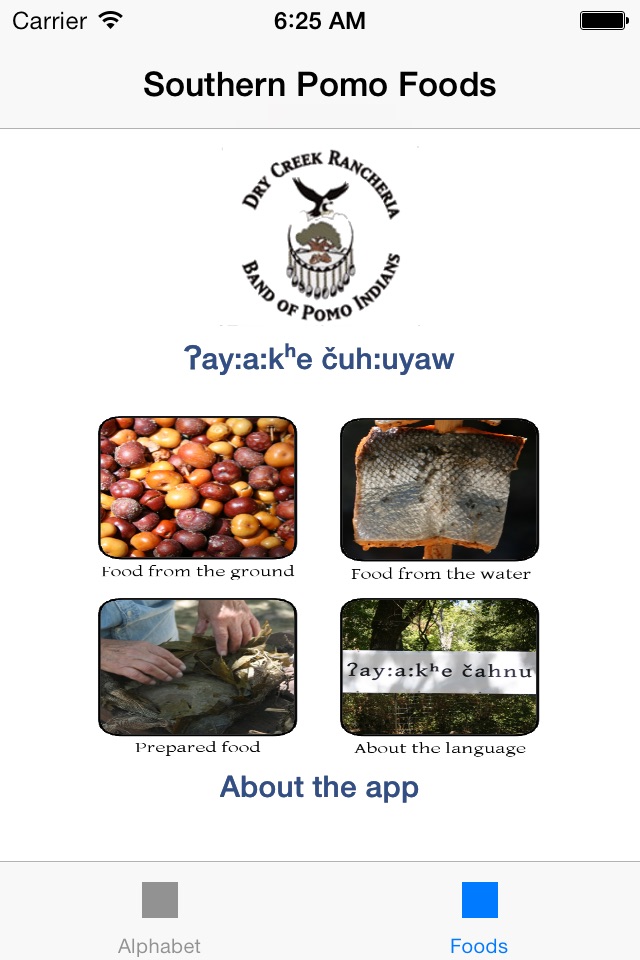
Learn Southern Pomo - Alphabet
The App
In an effort to support language revitalization efforts among Southern Pomo heritage speakers, we are developing a series of language-learning apps for students of Southern Pomo.
The first in this series of apps presents an interactive chart of the Southern Pomo Alphabet that allows the student to hear the pronunciation of each letter in a sample word, representing a vital first step in documenting and preserving the language.
Help us bring back this unique cultural treasure by supporting our development efforts. Together we can make a difference.
The Language
Southern Pomo is one of seven Pomo languages, each as different from one another as English and German. While some North American indigenous languages were spoken thorough vast areas (sometimes covering thousands of square miles), Southern Pomo was only spoken in the Russian River Valley. This unique language is the ancestral tongue of the Dry Creek Pomo people and is now highly endangered. Due to the effects of government-sponsored genocide, forced removal, and English-only policies within Indian boarding schools, no children have learned Southern Pomo as their mother tongue for generations.
At one time, Southern Pomo speakers faced so much prejudice that they were beaten if they spoke the language in public. Many Pomo parents who endured such experiences chose not to pass the langage to their children because they didnt want them to face the same fear and violence.
Government policies were designed to force Indians to abandon their cultural practices. Indian children were taken away from their families and placed into boarding schools where they were forbidden to speak their parents language. These atrocious policies along with the loss of ancestral land and widespread death from new diseases and massacres which followed American settlement, pushed all languages across California, including Southern Pomo, to the brink of extinction.
However, despite all this, the Southern Pomo language has not died out. For a period of more than 70 years, several elders, including the late Elizabeth Dollar from Dry Creek, worked long hours with a small number of linguists to record the langage for future generations.

